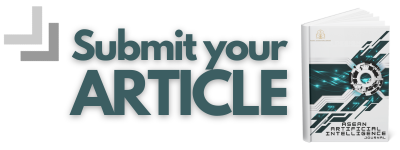Leveraging Artificial Intelligence (AI) to Enhance Differentiated Learning Strategies in Malaysian ESL Learners: A Conceptual Paper
DOI:
https://doi.org/10.37934/aaij.2.1.118Keywords:
Differentiated strategy, AI integration, ESL methodologyAbstract
In today's diverse educational landscape, integrating Artificial Intelligence (AI) into differentiated learning strategies offers a promising approach to enhancing English language instruction for Malaysian ESL learners. This conceptual paper looks into the promising potential of AI in transforming differentiated learning strategies for these students. It begins by highlighting the essential need for innovative approaches in ESL education, considering the varied linguistic and cultural backgrounds of Malaysian students. The paper then examines the various roles of AI in personalized learning, demonstrating how adaptive technologies can customize educational experiences to meet individual student needs. It reviews practical applications and tools, showcasing AI-driven platforms and methodologies that can be incorporated into the ESL curriculum. Additionally, the paper addresses the challenges of implementing AI-based strategies, such as technical limitations and resistance to change, and suggests solutions to overcome these obstacles. Future directions for AI in education are discussed, with an emphasis on the importance of ongoing research and development. The paper also focuses on AI's role in promoting equity and accessibility in the classroom, ensuring that all students have equal opportunities to succeed. Ethical concerns related to AI in education, including data privacy and algorithmic bias, are critically analyzed to ensure responsible use. The paper concludes with recommendations for future research, encouraging further exploration into the integration of AI in ESL education to improve learning outcomes and support diverse learner needs.











